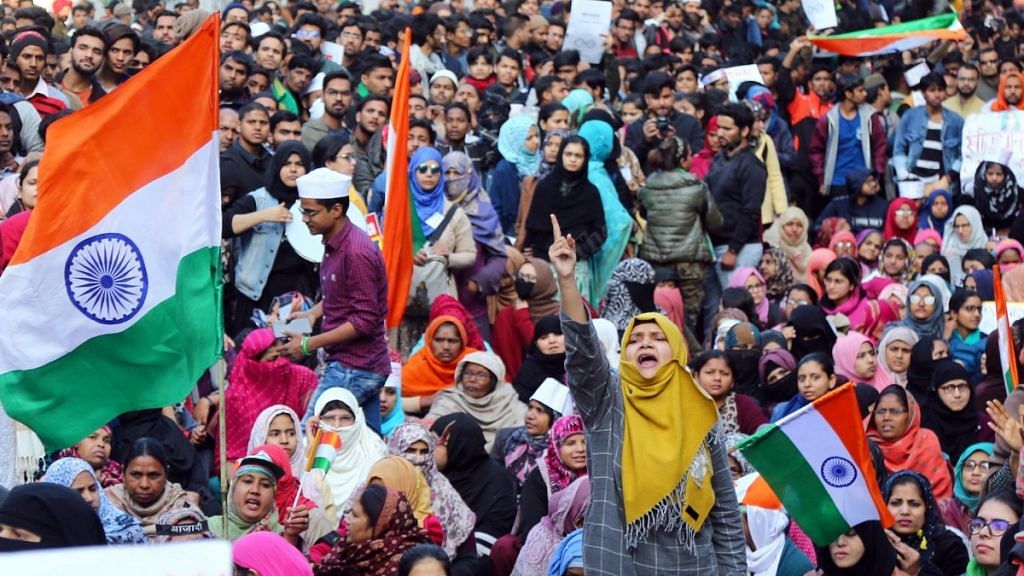Jamia Millia Islamia has been in the news during the past few weeks because of the participation of its students in the anti-CAA agitation and the alleged excesses committed by the Delhi police against them. The prevailing perception in some quarters that the anti-CAA protests at Jamia were a part of a nefarious “Islamic” conspiracy undertaken at a predominantly Muslim institution to create mayhem in the country is the result of total ignorance of the history of Jamia and its ideological moorings.
Some of this ignorance is based on the misunderstanding that Jamia was founded primarily to impart religious education and that the secular curriculum is a mere add-on or façade to hide its true character. Nothing can be farther from the truth.
Jamia was founded not to impart Islamic education but modern education to Muslim youth while at the same time inculcating a sense of Indian nationalism within them. This is a very important distinction. Jamia was not and is not a religious seminary like Deoband, although the latter also has a hoary nationalist past and leading luminaries of the seminary have participated in the freedom movement and opposed the partition of the country.
Also read: Have lost one eye, not resolve: Jamia student who won best paper after police lathi-charge
Jamia and its objective
In terms of its basic educational purpose, Jamia is like the Aligarh Muslim University (AMU) and was its offshoot. However, the ideological foundations and the political trajectories of the two institutions in the pre-independence period were polar opposites of each other. AMU was the brainchild of Sir Syed Ahmad Khan whose primary goal was to prepare young Muslims from Ashraf families through the medium of modern education to improve their status in British-ruled India. Jamia, on the other hand, was founded by a group of nationalist teachers, alumni, and students who quit AMU in response to Mahatma Gandhi’s call to boycott all educational institutions supported or run by the colonial regime. They were especially protesting against AMU’s decision to bar students and teachers from participating in the Non-Cooperation and Khilafat movements.
Prominent members of the movement to set up a nationalist, Muslim counterpart to British-supported AMU were Maulana Mahmud Hasan, Maulana Muhammad Ali, Hakim Ajmal Khan, Dr. Mukhtar Ahmad Ansari, and Abdul Majid Khwaja, several of whom were leading lights of the Congress. In the words of poet-activist Sarojini Naidu, they “built up the Jamia Millia stone by stone and sacrifice by sacrifice”. Rabindranath Tagore called it “one of the most progressive educational institutions of India”. The second wave of Muslim scholars, including Zakir Hussein, who later became President of India, who were studying abroad gave up the idea of lucrative careers and decided to join the Jamia faculty. Zakir Hussein accepted a monthly salary of one hundred rupees, which he voluntarily reduced to eighty rupees when Jamia was faced with a financial crunch in 1925. It is reported that when Jamia faced severe financial problems, Mahatma Gandhi boosted the morale of its founders by declaring, “Jamia has to run. If you are worried about its finances, I will go about with a begging bowl”.
Also read: Jamia saga — ABP has 5 videos, Times Now has 8 while Zee News has shocking headline
An institution for ‘co-existence’
Jamia moved from Aligarh to Delhi in 1925 first to Karol Bagh and then in 1936 to its present location in Okhla, then a sleepy village on the outskirts of Delhi. From its very inception, Jamia has stood for the co-existence of Islamic values with secular nationalism. Its founders believed that it was possible to be a patriot while being a good Muslim. To them, Islam and Indian nationalism were two sides of the same coin and one was incomplete without the other. One of its founders Maulana Hussain Ahmad Madani, who later became the head of the Deoband Seminary, wrote a book titled ‘Composite Nationalism’ advocating this thesis. The combination of two words “millia” (meaning “national”) and “Islamia” (meaning Islamic) demonstrates the fusion of secular nationalism and Muslim identity, both essential components of Jamia’s ideology.
The raison d’etre of Jamia was to build an educational institution and simultaneously provide a public space where Muslims could proudly be both Indian and Muslim, thus defying the British policy of dividing Indians by religious affiliation. It distinguished itself from AMU on two counts. One, it refused to take any financial help from the government as long as the British ruled India. Two, Jamia rejected Jinnah’s pernicious two-nation theory that gained a great deal of support at AMU in the 1940s. Even at the time of partition when communal killings were taking place around the city, the Jamia campus continued to be a haven of peace refusing to be engulfed by the madness surrounding it. Its students and teachers worked with Muslims who had been displaced by the riots and taken refuge at Humayun’s Tomb and Purana Qila. At the same time, the Jamia campus gave shelter to Hindu and Sikh refugees uprooted from their homes in what had become Pakistan.
One should view the Jamia student’s opposition to, and protest against, CAA/NRC in the context of the institution’s ideological underpinnings into which they have been socialized. Whether rightly or wrongly, many students of Jamia, both Muslim and Hindu, saw the CAA as derogating from the idea of composite nationalism which has formed the bedrock of Jamia’s existence. It is important to understand that their opposition to CAA is not based either on Islamic revivalism or on any political ideology threatening the unity of the nation but exactly the reverse.
The author is University Distinguished Professor Emeritus of International Relations, Michigan State University. Views are personal.
